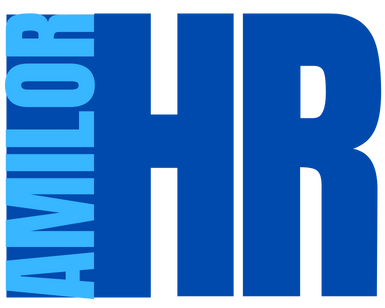SMIC and payroll are fundamental elements of French labor law. Understanding their mechanisms is essential for employers and employees alike. This article looks in detail at the key aspects of SMIC and payroll, offering a comprehensive guide to navigating this complex but vital area.
Understanding the SMIC: definition, amount and application
The Salaire Minimum Interprofessionnel de Croissance (SMIC) is the legal minimum hourly wage in France. It applies to all employees over the age of majority, whatever their sector of activity. As of November 1, 2024, the SMIC is €11.88 gross per hour, or €1,801.80 gross per month for a full-time 35-hour week.
The net amount of the SMIC, after deduction of social security contributions, is around €1423-1426 per month for full-time work. Note that this amount may vary slightly depending on the specific features of the company and the employment contract.
The SMIC is regularly adjusted to keep pace with changes in the cost of living. The latest, a 2% increase on November 1, 2024, illustrates this adjustment mechanism. Traditionally, these revaluations take place on January 1 of each year, taking into account inflation and the gain in purchasing power for blue-collar and white-collar workers.
The following table summarizes the SMIC’s evolution over the last few years:
| Year | Gross hourly SMIC | Gross monthly minimum wage (35h) |
|---|---|---|
| 2024 (November) | 11,88€ | 1801,80€ |
| 2023 | 11,27€ | 1709,28€ |
| 2022 | 10,85€ | 1645,58€ |
There are special cases concerning the application of the SMIC:
- Young workers under 18 may receive a reduced SMIC: -20% before age 17, -10% between ages 17 and 18.
- Apprenticeship and professionalization contracts are paid at a specific rate, generally lower than the SMIC.
For employers, it is crucial to ensure that the remuneration paid is at least equal to the SMIC. This verification must take into account various payroll elements such as base salary, benefits in kind, production bonuses and tips. On the other hand, certain elements are excluded from this calculation, notably seniority and attendance bonuses, professional expenses and overtime bonuses.
Impact of the SMIC on payroll management
The revaluation of the SMIC has significant repercussions on several aspects of payroll management. In particular, it influences :
- the ceiling on Social Security daily allowances (IJSS) in the event of illness
- The general reduction in employer contributions
- Family allowance and health insurance contributions
These changes require regular updating of payroll systems. For efficient management of these aspects, many companies turn to specialized solutions. For example, Nibelis offers tools for optimized HR management, including payroll management in line with changes in the minimum wage.
It is also crucial for employers to compare the SMIC with conventional minimum wages. As a result, some collective bargaining agreements may stipulate minimum wages higher than the SMIC. In such cases, the conventional wage applies.

Rights and obligations linked to the SMIC
Understanding the rights and obligations associated with the SMIC is essential for employers and employees alike. Here are the key points to remember:
For employers :
- Obligation to pay at least the SMIC to all eligible adult employees
- Respect SMIC increases and adjust salaries accordingly
- Regular checks to ensure that wages are in line with the SMIC.
- Take account of specific sectoral and collective bargaining conditions
For employees :
- Right to remuneration at least equal to the SMIC (minimum wage)
- Entitlement to automatic pay increases
- Right to information on the components of their remuneration
Failure to comply with the SMIC can result in severe penalties for the employer, ranging from fines to criminal prosecution in the most serious cases. It is therefore vital for companies to remain vigilant and ensure that they comply with current legislation.
Future prospects and challenges
SMIC and payroll management are constantly evolving fields, influenced by economic, social and technological changes. A number of challenges lie ahead:
- Increasing digitalization of payroll management
- Adapting to new forms of work (telecommuting, freelancing, etc.)
- Addressing purchasing power issues in a context of inflation
- Harmonization of practices at European level
These changes will require ongoing adaptation of HR management and payroll practices. Professionals in the sector will need to keep abreast of legislative and technological changes to ensure efficient and compliant management.
In this context of change, training and information play a crucial role. Employers and employees alike need to keep abreast of developments in labor law and compensation practices. This is particularly important in a globalized job market. For example, for those considering a professional experience abroad, it is essential to understand local specificities. For those interested in the African continent, finding a job in Guinea may offer interesting opportunities, with salary and working conditions different from those in France.
Ultimately, the SMIC and payroll management remain essential pillars of French labor law. Their understanding and correct application are crucial to ensuring fairness and respect for rights in the professional world. Employers and employees alike must remain vigilant and informed to navigate effectively in this constantly changing environment.

